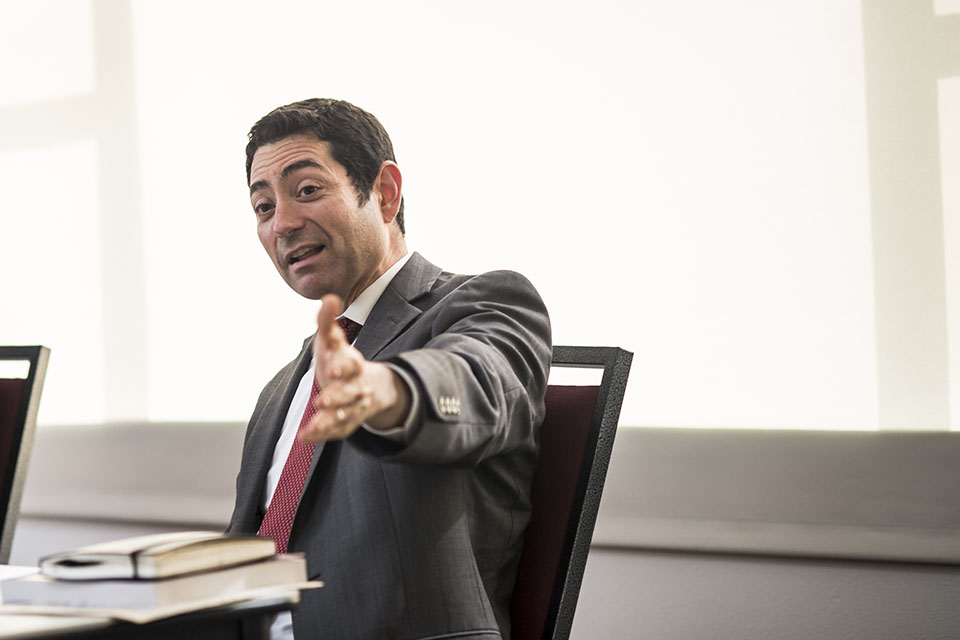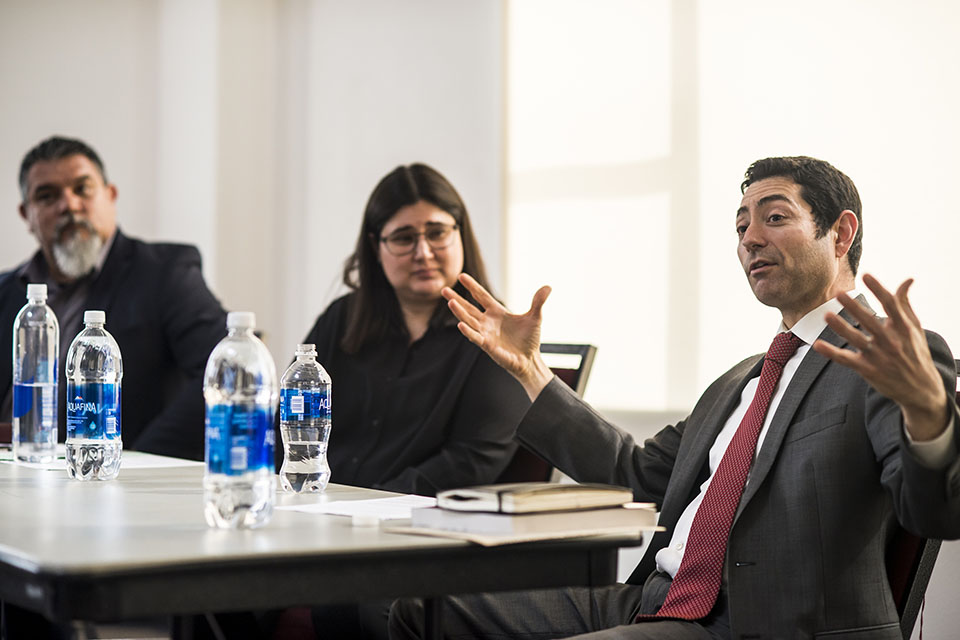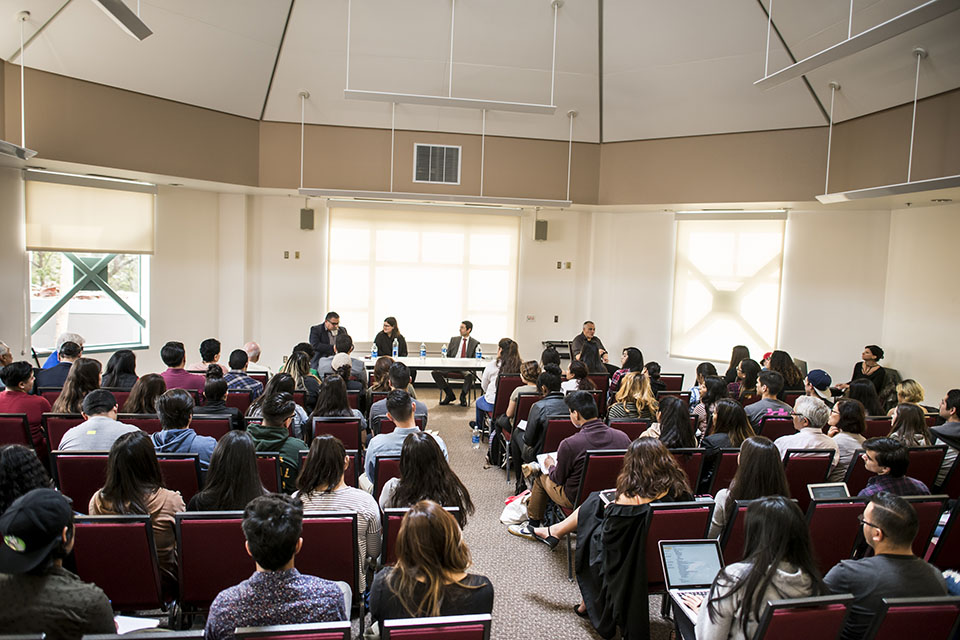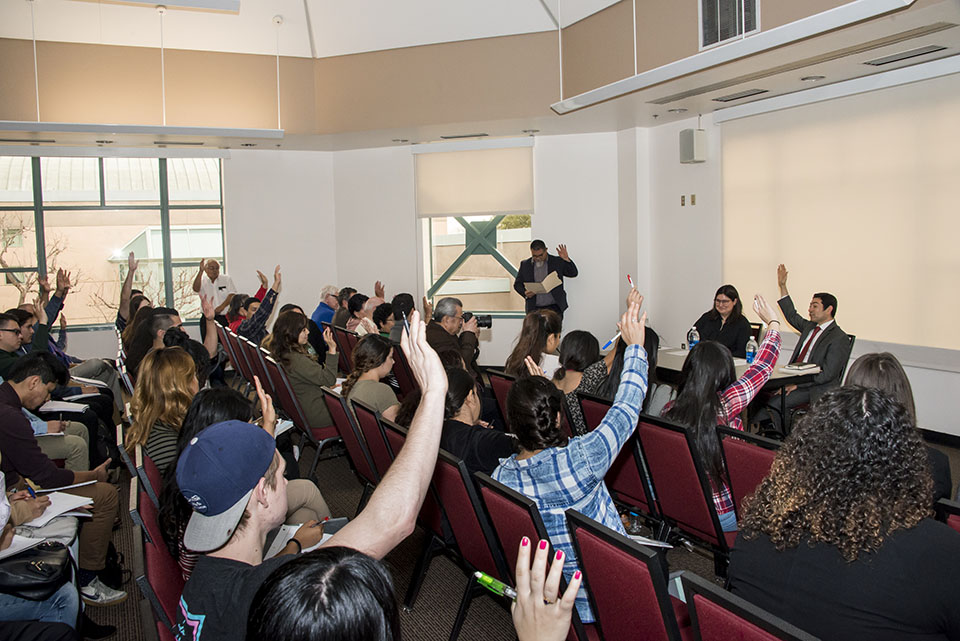State Supreme Court Justice Mariano-Florentino Cuéllar Shares His Story with CSUN Students
California State University, Northridge students had the rare opportunity to meet and hear from California Supreme Court Justice Mariano-Florentino Cuéllar on Feb. 16 in the Thousand Oaks Room at the University Student Union.
Instead of giving a traditional lecture, Justice Cuéllar opted to go with a question-and-answer forum, giving approximately 70 students a unique opportunity to ask him a question. Professor Melisa Galvan of the Department of Chicana/o Studies, which was integral in bringing Cuéllar to CSUN, opened up the discussion by asking about Cuéllar’s childhood at the United States-Mexico border.
“I grew up in Matamoros, [a town in Mexico that shares a border with Texas],” Cuéllar said. “There is a special knowledge that I acquired because I lived on the U.S.-Mexico border. I realized that the United States and Mexico have always been, and will always be, interdependent.”
Galvan and Chicana/o Studies Department Chair Gabriel Gutierrez then took turns asking Cuéllar questions before opening up to questions submitted by the audience. Initially, Cuéllar focused on his early goal to earn a college education, which he did graduating magna cum laude from Harvard University in 1993.
“I was very lucky to have parents who placed a strong emphasis on education,” he said. “My father was a teacher and my mother worked at a library. My dad would ask us to send him letters when he was working in the U.S. When he wrote back, he sent back my letter with corrections in red ink. ”
After earning his bachelor’s degree at Harvard, Cuéllar earned his J.D. from Yale Law School then received his doctorate in political science from Stanford. After law school, he worked for the U.S. Treasury Department’s Office of Enforcement and clerked for Chief Judge Mary M. Schroeder of the U.S. Court of Appeals for the Ninth Circuit. Cuéllar has also served as a law professor at Stanford and as director of Stanford’s Freeman Spogli Institute for International Studies.
The CSUN panelists, however, were most interested in the judge’s role as Co-Chair on the Obama-Biden Transition Immigration Policy Working Group from 2008 to 2009. Cuéllar said the experience was challenging, noting that the American public has very particular expectations.
“On the one hand, there’s all this expectation,” he said. “Everybody thinks that you will be able to achieve everything that they want from that … presidency. And because people vote for so many different reasons, it’s pregnant with hope — but also a sense that is dawning on everybody working on the transition, that there’s probably no way you’re going to be able to meet everybody’s expectations.”
Cuéllar also spoke about some of the issues he had as a working-class Mexican-American at prestigious private universities filled with students from privleged upbringings. He left CSUN students with an inspiring message about diversity and encouraged them to embrace their background.
“I felt like there was some conquering of fear,” Cuéllar said. “Somewhere along the line there was a crucial turning point, maybe about a year into [college]. It kind of flipped and I thought, ‘it’s true that I’m not coming into it with some of what they have, but they’re not coming into this with some of what I have.'”





 experience
experience